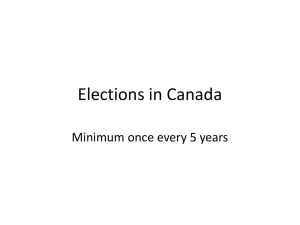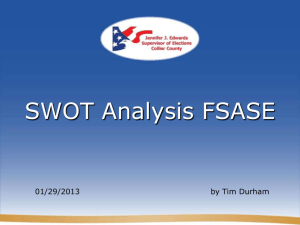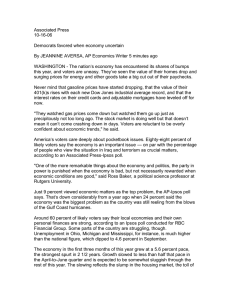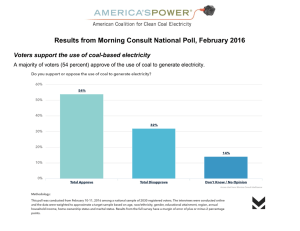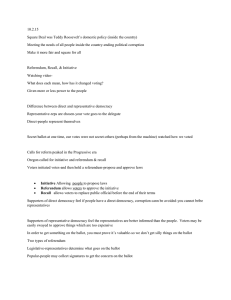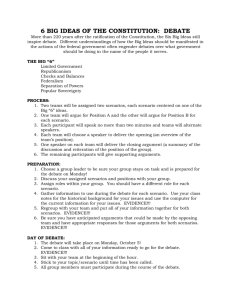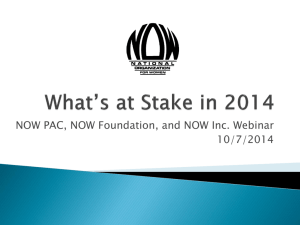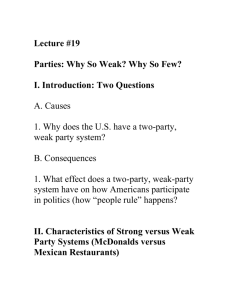The idea: Limited Government Question: To what extent should the
advertisement
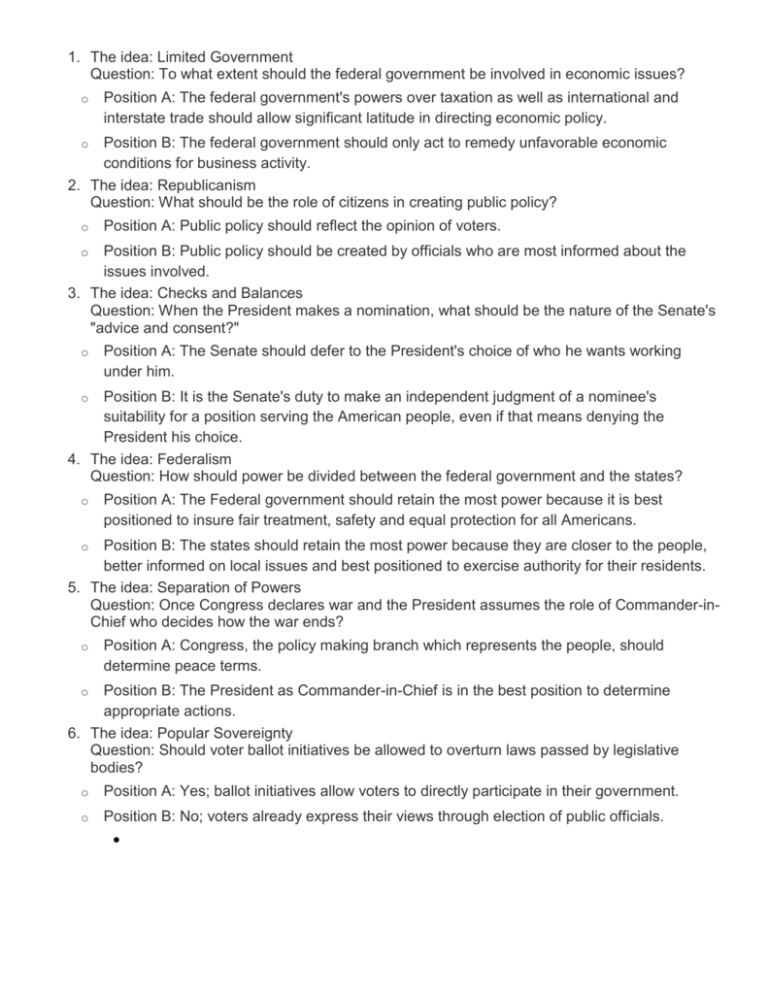
1. The idea: Limited Government Question: To what extent should the federal government be involved in economic issues? o Position A: The federal government's powers over taxation as well as international and interstate trade should allow significant latitude in directing economic policy. Position B: The federal government should only act to remedy unfavorable economic conditions for business activity. 2. The idea: Republicanism Question: What should be the role of citizens in creating public policy? o o Position A: Public policy should reflect the opinion of voters. Position B: Public policy should be created by officials who are most informed about the issues involved. 3. The idea: Checks and Balances Question: When the President makes a nomination, what should be the nature of the Senate's "advice and consent?" o o Position A: The Senate should defer to the President's choice of who he wants working under him. Position B: It is the Senate's duty to make an independent judgment of a nominee's suitability for a position serving the American people, even if that means denying the President his choice. 4. The idea: Federalism Question: How should power be divided between the federal government and the states? o o Position A: The Federal government should retain the most power because it is best positioned to insure fair treatment, safety and equal protection for all Americans. Position B: The states should retain the most power because they are closer to the people, better informed on local issues and best positioned to exercise authority for their residents. 5. The idea: Separation of Powers Question: Once Congress declares war and the President assumes the role of Commander-inChief who decides how the war ends? o o Position A: Congress, the policy making branch which represents the people, should determine peace terms. Position B: The President as Commander-in-Chief is in the best position to determine appropriate actions. 6. The idea: Popular Sovereignty Question: Should voter ballot initiatives be allowed to overturn laws passed by legislative bodies? o o Position A: Yes; ballot initiatives allow voters to directly participate in their government. o Position B: No; voters already express their views through election of public officials.
